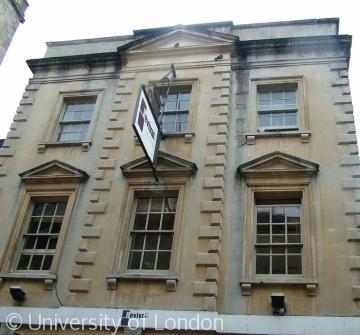56 Corn Street

The Bristol Slavery Trail illustrates the links between the city of Bristol and the wider global economy during the era of the Atlantic slave trade. Many merchants in Georgian Bristol still preferred to do their business in Bristol's coffee houses and of course, coffee was then largely slave-produced. This building, still a coffee and sandwich shop, has been a coffee shop for over two hundred years! Though Bristol did not have a large African population in this era, some peple of African origin did live in the city and you can see documented instances of the African presence in Bristol.
Coffee houses began as a meeting place for the well-off, since coffee (and tea and chocolate) were originally expensive luxuries. (Coffee and chocolate were grown by slaves in the Caribbean and Latin America.) Men involved in trading would come to the coffee shop to read the newspapers, share business gossip and arrange business deals.
Content generated during research for the paperback book 'Bristol: Ethnic Monorities and the City 1000-2001' (ISBN 13 : 978-1-86077-477-5 ) for the England's Past for Everyone series





